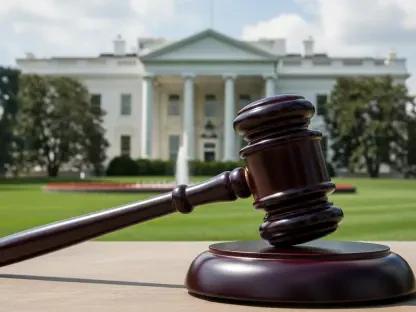The disbarment of Kenneth Chesebro, a former lawyer for ex-President Donald Trump, captures significant attention, mainly owing to the intricacies of legal accountability and ethical standards in the legal profession. Chesebro’s involvement in the 2020 presidential election, specifically the alternate electors strategy, led to severe professional consequences, marking a pivotal moment in the judicial evaluation of attorneys’ conduct. This timeline aims to delineate key events leading to his disbarment, shedding light on the implications of his actions and their resonance within the legal community and public sphere today.
2020 – The Alternate Electors Strategy
In 2020, Kenneth Chesebro played a notable role in the alternate electors strategy amid the presidential election. His efforts primarily focused on coordinating pro-Trump electors in states won by Joe Biden, under assertions they were legitimate. This strategy contributed to widespread controversy and eventually formed a pivotal element in the ensuing legal challenges concerning the election results.
November 2020 – Suspicion and Legal Challenges
Following the election, suspicions surrounding the legitimacy of Biden’s win led to an array of legal challenges. Chesebro, among others, vigorously pursued cases to contest the election outcomes. These activities were characterized by widespread scrutiny and set the stage for future legal probes, emerging as significant components in examining the integrity of the electoral process.
2021 – Investigations Initiated
As the investigations into the election strategies gained momentum in 2021, various legal inquiries began focusing on those involved, including Chesebro. His actions drew increased attention, leading to multiple legal assessments and questioning the methods employed by Trump’s campaign and its affiliates. These investigations formed a crucial turning point, anchoring the broader context of Chesebro’s legal challenges.
Fall 2022 – Suspension of Law License
In the fall of 2022, Kenneth Chesebro’s law license faced suspension in New York. This action was a direct response to ongoing investigations and reflected the growing seriousness of the allegations against him. The suspension served as a precursor to more stringent disciplinary measures, marking an essential development in his professional trajectory.
October 2023 – Guilty Plea and Disbarment
By October 2023, Chesebro’s legal challenges culminated in a guilty plea to a felony charge of conspiracy to commit filing false documents, resulting from a Georgia investigation. The New York appeals court labeled this a “serious crime,” warranting disbarment. The court asserted that his actions undermined his professional integrity and the constitutional democracy he, as an attorney, was sworn to uphold. His disbarment underscored the ethical violations and accountability demands within the legal profession.
Conclusion
The disbarment of Kenneth Chesebro for his involvement in Trump’s 2020 election strategy highlights critical milestones in the accountability and integrity of legal professionals. His case adds to a broader narrative of ethical scrutiny facing attorneys who partook in efforts to challenge election results. Future considerations may focus on strengthening regulatory frameworks and ensuring that legal practices align with ethical standards, thereby fostering public trust in judicial processes. This case might further stimulate legal reforms aimed at fortifying oversight on attorneys’ roles in political processes.









